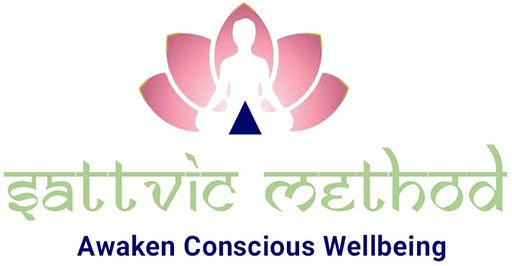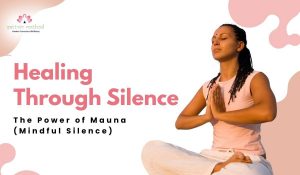Anger is one of the most common emotions among all beings and wired into our neural circuits. Even animal brains have a similar basic neural circuitry. Anger can be recognized by a spectrum of reactions from mild frustration to absolute fury, and the intensity, frequency with which you feel anger and how you act or resolve it is very personal. Scientists are now beginning to unravel the ways that personality, age, gender, and life experiences shape the way you feel anger.
Brain scans show that anger registers in Amygdala region, a small tear shaped region, which is responsible for decision-making, instinctive and motivational adaptations of behavior in response to the environment. You are constantly learning from our surroundings. When there is a mismatch between what you’ve learned to expect and what you’re dealt with, your brain’s reward circuit sounds the alarm.
Anger can trigger the body’s fight or flight response mechanism which hormones such as adrenaline, and testosterone, priming your body for physical aggression. Another area of the brain, the prefrontal cortex, makes the decision if the aggression is expressed as swearing or scowling or even punching. The entire brain and body become engulfed in the wave of hormones and reactions.
Women and anger
For many women, anger is an emotion that is often suppressed or dismissed. Society has long perpetuated the narrative that women should be nurturing and accommodating, making it difficult for them to express their anger in healthy ways. Many women have also grown up in households that told them not to make the men angry. Overtime women have lost the skill of identifying anger and finding solutions for their stressors. However, finding a balance between acknowledging anger and managing it effectively is crucial for women’s mental and emotional well-being.
In this article, we will explore the concept of women and anger, and how mindfulness practices can help women navigate and channel their anger in a positive and empowering way. By incorporating mindfulness techniques into their daily lives, women can gain a deeper understanding of their emotions, allowing them to respond to anger with composure and thoughtfulness.
We will delve into various mindfulness practices that can be beneficial for women in managing their anger. From meditation and breathing exercises to journaling and self-reflection, these techniques can provide women with the tools to process and release anger, fostering a more balanced and centered state of being.
Join us as we uncover the power of mindfulness in helping women embrace their anger with grace and find inner peace amidst their daily struggles.
The impact of anger on women’s mental and physical health
Anger is a natural human emotion that everyone experiences from time to time. However, women often face unique challenges when it comes to expressing and managing their anger. Societal expectations of women as caregivers and peacekeepers have led to the suppression of anger, causing it to manifest in unhealthy ways or become internalized.
Women may feel guilt or shame for experiencing anger, believing that it goes against societal norms. This can lead to a sense of powerlessness and an inability to effectively communicate their needs and boundaries. It is important to recognize that anger is a valid emotion and that women have the right to express it in healthy and constructive ways.
Mindfulness as a tool for managing anger
Suppressing or mismanaging anger can have detrimental effects on women’s mental and physical health. When anger is repressed, it can lead to increased stress levels, anxiety, and even depression. The constant internalization of anger can also contribute to a weakened immune system, sleep disturbances, and digestive issues.
Furthermore, unexpressed anger can strain relationships and hinder personal growth. It may lead to resentment, passive-aggressive behavior, or an overall sense of dissatisfaction. It is essential for women to find ways to effectively manage their anger to maintain their well-being and cultivate healthy connections with others.
Mindfulness practices for cultivating emotional balance
Mindfulness is a practice that involves bringing one’s attention to the present moment and observing thoughts, feelings, and bodily sensations without judgment. It allows individuals to develop awareness of their emotions and respond to them in a more intentional and compassionate manner. Mindfulness can be a powerful tool for women in managing their anger.
By practicing mindfulness, women can cultivate a sense of calm and self-awareness, enabling them to recognize the signs of anger before it escalates. Mindfulness helps women become more attuned to their emotions, allowing them to respond to anger with composure and thoughtfulness instead of reacting impulsively.
Breathing exercises for anger management
There are various mindfulness practices that women can incorporate into their daily lives to cultivate emotional balance and effectively manage their anger. These practices provide women with the tools to process and release anger, fostering a more balanced and centered state of being.
Breathing exercises for anger management
Deep breathing exercises can be powerful tools for managing anger. When anger arises, taking slow, deep breaths can help calm the nervous system and bring a sense of grounding. By focusing on the breath, women can redirect their attention away from anger and towards a more peaceful state of mind.
One effective breathing exercise is the 4-7-8 technique. Inhale deeply through the nose for a count of 4, hold the breath for a count of 7, and exhale slowly through the mouth for a count of 8. Repeat this cycle several times, allowing the breath to become a source of relaxation and release.
Incorporating meditation into your daily routine
Meditation is a practice that involves quieting the mind and focusing one’s attention. It can be particularly beneficial for women in managing anger as it allows for self-reflection and the cultivation of inner peace. Regular meditation practice can help women develop resilience and a greater capacity for emotional regulation.
To start a meditation practice, find a quiet and comfortable space where you can sit or lie down. Close your eyes and bring your attention to your breath. Observe the sensations of the breath as it enters and leaves your body. When thoughts or emotions arise, gently bring your focus back to the breath. Start with just a few minutes a day and gradually increase the duration as you become more comfortable.
Journaling and self-reflection for anger management
Journaling is a powerful tool for exploring and processing emotions, including anger. By putting pen to paper, women can gain insight into the underlying causes of their anger and find healthier ways to express it. Journaling allows for self-reflection and can be a cathartic release for pent-up emotions. You can buy various types of journals to write here. Our product design allows you to express yourself by doodling and writing in the same book.
Set aside time each day to write in a journal. Begin by writing freely, without judgment or concern for grammar. Allow your thoughts and emotions to flow onto the page. Explore the triggers and patterns of your anger, and consider alternative ways of responding to those triggers. Journaling can help you gain clarity and develop a more compassionate relationship with your anger.
Seeking professional help for anger issues
If anger becomes overwhelming or begins to negatively impact your daily life, it may be beneficial to seek professional help. A therapist or counselor can provide guidance and support in managing anger, helping you develop healthy coping mechanisms and communication skills. They can also help you explore any underlying issues that may contribute to your anger. Join our free sessio
Remember, seeking help is a sign of strength, and there is no shame in asking for support. A trained professional can offer valuable insights and strategies for managing anger in a healthy and constructive way.
Incorporating meditation into your daily routine
In addition to mindfulness practices, self-care is an essential component of managing anger. Taking care of your physical, mental, and emotional well-being can help reduce stress levels and promote a more balanced state of mind.
Self-care looks different for everyone, so it is important to find activities that resonate with you. Engage in activities that bring you joy and help you unwind, whether it’s reading a book, taking a bath, practicing yoga, or spending time in nature. Prioritize self-care as part of your daily routine, and make time for activities that nourish your soul.
Journaling and self-reflection for anger management
In conclusion, anger is a natural emotion that women should not suppress or dismiss. By embracing mindfulness practices, women can develop a healthier relationship with their anger and learn to manage it effectively. Mindfulness provides women with the tools to navigate and channel their anger in a positive and empowering way.
Through breathing exercises, meditation, journaling, and self-reflection, women can cultivate emotional balance and respond to anger with composure and thoughtfulness. Seeking professional help when needed and prioritizing self-care are also crucial components of managing anger in a healthy and constructive manner.
Let us empower women to embrace their anger with grace and find inner peace amidst their daily struggles. By incorporating mindfulness into their lives, women can achieve a more balanced state of being and cultivate a healthier relationship with their emotions.
Coloring books can be a helpful and enjoyable tool for self-reflection. Buy our coloring books here. Know some of the benefits of using coloring books for self reflection:
- Mindfulness and Relaxation: Coloring requires focus and attention to detail, promoting a meditative and mindful state. Engaging in this activity can help reduce stress and anxiety, allowing individuals to be more present in the moment.
- Stress Relief: The rhythmic and repetitive motion of coloring can have a calming effect on the nervous system. It can serve as a form of stress relief by providing a creative outlet and a break from daily pressures.
- Expression of Emotions: Choosing colors, patterns, and designs can be a form of self-expression. The act of coloring allows individuals to explore and convey their emotions without the need for verbal communication.
- Creativity and Imagination: Coloring books often feature intricate designs and patterns, encouraging creativity and imaginative thinking. This can be a way for individuals to express themselves artistically and explore different color combinations.
- Focus and Concentration: Coloring requires concentration on the task at hand, which can help redirect the mind away from negative thoughts or distractions. It can improve cognitive focus and attention.
- Therapeutic Tool: Coloring is sometimes used as an art therapy technique. It can be a therapeutic tool for individuals dealing with various mental health challenges, providing a non-verbal way to process emotions and thoughts.
- Self-Reflection: As individuals choose colors and engage with the coloring process, they may find themselves reflecting on their mood, preferences, and choices. It can be an opportunity for introspection and self-discovery.
- Time for Yourself: Engaging in coloring can be a form of self-care, offering individuals a dedicated time to relax and focus on their own well-being. It can be a simple and accessible way to prioritize “me time.”
- Achievement and Satisfaction: Completing a coloring page provides a sense of accomplishment. This can boost self-esteem and contribute to a positive mindset, especially for those who may be dealing with challenges or setbacks.
- Distraction from Negative Thoughts: Coloring can serve as a healthy distraction from rumination or negative thought patterns. It provides a constructive and enjoyable activity that can shift the focus away from stressors.
When using coloring books for self-reflection, it’s essential to approach the activity with an open mind and without judgment. The goal is not necessarily to create a masterpiece but to engage in a process that brings about relaxation, self-awareness, and a sense of personal fulfillment.
The importance of self-care in managing anger
Anger can be a powerful and overwhelming emotion, and journaling and self-reflection can be effective tools for managing it. By writing down their thoughts and feelings, women can gain clarity and insight into the underlying causes of their anger. Journaling provides a safe space to express and process emotions, allowing women to release pent-up anger and gain a sense of relief.
Self-reflection is another valuable practice for anger management. By taking the time to introspect and understand the triggers and patterns of their anger, women can develop a greater sense of self-awareness. This awareness enables them to recognize and address their anger in a healthier way. Through self-reflection, women can identify any underlying issues that may be contributing to their anger and work towards resolving them.
Incorporating journaling and self-reflection into a daily routine can provide women with a consistent outlet for their anger. By regularly engaging in these practices, women can develop a deeper understanding of their emotions and cultivate a more balanced and harmonious inner state.
Wordless nature related picture books are created by the Sattvic Method Company to support well-being and healing on the go. Nature-based wordless healing picture books can offer a range of benefits for individuals of all ages. Check out our healing wordless picture books. Here are some potential advantages:
- Stress Reduction: Nature scenes have been shown to have a calming effect on the mind. Viewing serene landscapes or natural environments in picture books can help reduce stress and promote relaxation.
- Emotional Well-being: Nature images can evoke positive emotions and a sense of well-being. Wordless picture books allow individuals to interpret and connect with the images in a way that resonates with their emotions.
- Mindfulness and Presence: Observing nature scenes without the distraction of words encourages mindfulness and being present in the moment. It provides an opportunity for individuals to focus on the visual details and engage in a meditative experience.
- Universal Appeal: Wordless picture books with nature themes often have universal appeal, transcending language barriers. This makes them accessible to people of different cultures and ages, fostering a sense of inclusivity and connection.
- Imagination and Creativity: Without the constraints of words, individuals can use their imagination to create their own narratives and stories based on the images. This promotes creativity and imaginative thinking.
- Therapeutic Value: Nature-based imagery is often used in therapeutic settings to support mental health. Picture books with healing nature scenes can be a valuable tool for therapists working with individuals dealing with stress, anxiety, or other emotional challenges.
- Connection to Nature: For those who may not have regular access to natural settings, nature-based picture books provide a way to connect with the beauty of the outdoors. This can be particularly beneficial for individuals in urban or indoor environments.
- Educational Tool: Wordless nature books can be used as an educational resource, promoting observation skills, visual literacy, and an appreciation for the environment.
- Diverse Perspectives: Nature-based picture books can feature a variety of landscapes, ecosystems, and wildlife, exposing readers to the diversity of the natural world. This can foster an appreciation for environmental conservation and ecological awareness.
- Parent-Child Bonding: Sharing wordless picture books with children can be a wonderful bonding activity. It allows for open-ended discussions, encourages children to express their thoughts and feelings, and provides a shared, positive experience.
When considering the purchase or use of nature-based wordless healing picture books, it’s important to choose ones that align with individual preferences and needs. The therapeutic benefits may vary from person to person, but many individuals find solace and inspiration in the beauty of nature captured in visual storytelling.
Embracing mindfulness for a healthier relationship with anger
While self-help techniques can be beneficial for managing anger, some women may require additional support in dealing with more intense or persistent anger issues. Seeking professional help from therapists or counselors can provide women with the guidance and tools needed to navigate their anger in a healthy and constructive manner.
Therapy offers a safe and non-judgmental space for women to explore the root causes of their anger and develop strategies for managing it. Therapists can help women identify any underlying trauma, stressors, or unresolved issues that may be fueling their anger. Through various therapeutic techniques, such as cognitive-behavioral therapy or anger management exercises, women can learn new coping mechanisms and develop healthier ways to express and process their anger.
Consciousness-based practices for healing anger
Consciousness-based healing methods for anger involve techniques that focus on awareness, mindfulness, and a deeper understanding of the underlying causes of anger. The Sattvic Method Company offers mentoring program for women. Follow the link to find out more details.These practices aim to promote emotional regulation, self-awareness, and a more balanced response to challenging situations. Here are some consciousness-based healing methods for managing anger:
- Mindfulness Meditation: Regular meditation helps cultivate awareness of thoughts and emotions, including anger. Mindfulness teaches you to observe your feelings without judgment and allows them to come and go without reacting impulsively.
- Deep Breathing Exercises: Diaphragmatic breathing taking deep, slow breaths can help activate the relaxation response, calming the nervous system. When you feel anger rising, take deep breaths, focusing on the sensation of the breath entering and leaving your body.
- Body Scan Meditation: Conduct a body scan meditation, paying attention to physical sensations associated with anger. This practice helps you become more attuned to the signals your body sends when experiencing anger and can contribute to a sense of grounding.
- Journaling: Keep a journal to explore the root causes of anger, triggers, and patterns of behavior. Reflective writing can bring subconscious thoughts to the surface, allowing for a deeper understanding of the emotional landscape.
- Mindful Walking: Combine mindfulness with physical activity by practicing mindful walking. Focus on the sensations of each step, allowing your awareness to anchor in the present moment.
- Visualization and Imagery: Use guided imagery to visualize calm and peaceful scenes. This can help shift your emotional state and create a mental space for relaxation.
- Gratitude Practices: Cultivate a mindset of gratitude by regularly acknowledging and appreciating positive aspects of your life. Gratitude practices can contribute to a more positive overall outlook.
- Yoga: Engage in mindful yoga practices that combine movement, breath, and awareness. Yoga can help release physical tension and promote emotional balance.
It is important to note that these methods may be more effective when practiced consistently over time. Additionally, seeking the guidance of a mental health professional, such as a therapist or counselor, can provide personalized support for addressing and managing anger in a conscious and constructive manner.
Finally, it is important to remember that seeking professional help is not a sign of weakness, but rather a courageous step towards healing and personal growth. By reaching out to a trained professional, women can gain valuable insights and support in their journey towards managing anger effectively.




